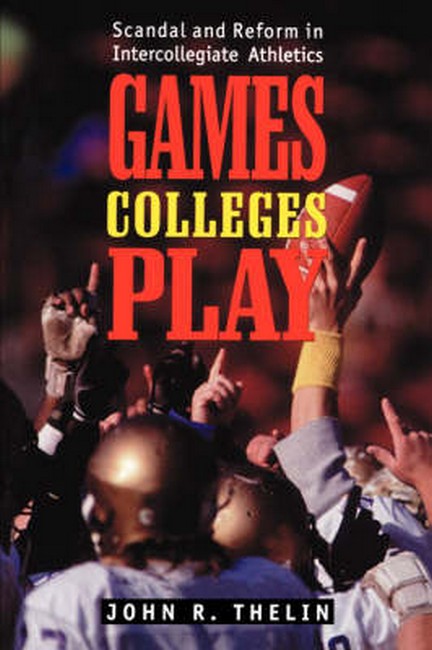Featuring a new introduction by the author, the paperback edition of Games Colleges Play chronicles the history of intercollegiate athletics from 1910 to 1990--from the early, glory days of Knute Rockne and the Gipper to the modern era of big budgets, powerful coaches, and pampered players. John Thelin describes how sports programs--although seldom accorded official mention with teaching and research in the university mission statement--have become central to university life. As administrators search for a proper balance between athletics and academics, Thelin observes, this peculiar institution grows increasingly powerful and controversial. Thelin examines the 1929 Carnegie Foundation Report, the formation of major athletic conferences, the national college basketball scandals after World War II, the dissolution of the Pacific Coast Conference in the 1950s, and the Knight Foundation Report of 1991. He finds disturbing patterns of abuse and limited reform and explores the implications of these patterns for today's college presidents, faculty, and students. ''Games Colleges Play provides historical background that will inform current policy discussions about the proper place of intercollegiate athletics within the American university. ''A welcome book on an important subject.--''American Historical Review ''An important historical analysis of college sport placed in the broader setting of American higher education. Thelin provides a helpful, if dispiriting, perspective for not only thinking about current problems plaguing college sport but also for understanding why college sport has survived and why university leadership and the sports establishment have resisted major reform efforts''.--Academe

